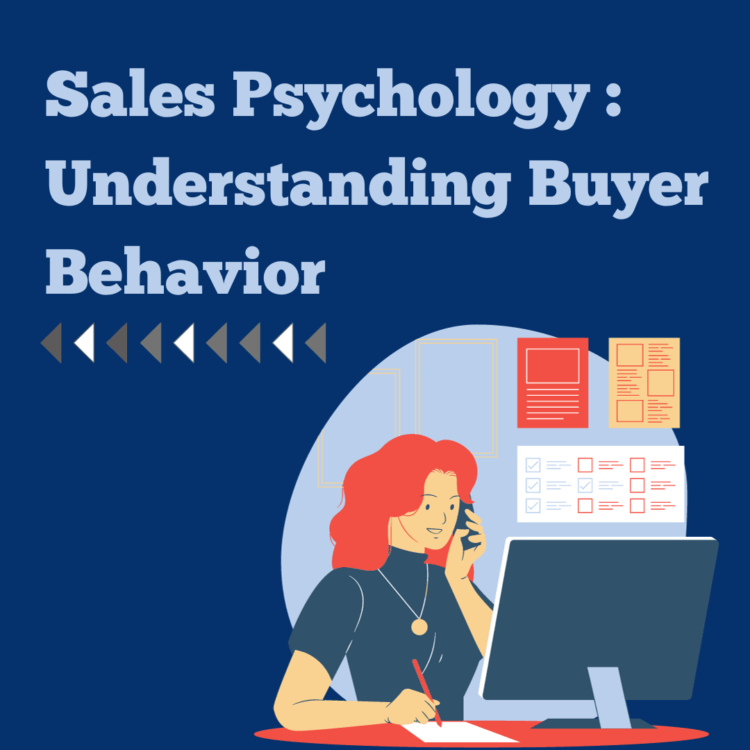Understanding buyer behavior is a crucial aspect of sales psychology. By gaining insights into why and how individuals make purchasing decisions, sales professionals can tailor their approaches to better connect with potential customers and increase the likelihood of successful sales. Here are key principles of sales psychology related to understanding buyer behavior:
Emotional Decision-Making:
People often make purchasing decisions based on emotions rather than purely rational considerations. Understanding the emotional triggers that influence buyer behavior can help sales professionals appeal to customers on a deeper level.
Building Trust:
Trust is fundamental in any sales relationship. Buyers are more likely to make a purchase from someone they trust. Establishing trust involves being transparent, reliable, and demonstrating expertise in your field.
Social Proof:
Buyers often seek confirmation from others before making a decision. Utilize social proof, such as customer testimonials, reviews, and case studies, to showcase the positive experiences of previous customers and build credibility.
Scarcity and Urgency:
The fear of missing out (FOMO) can be a powerful motivator. Creating a sense of scarcity or urgency, such as limited-time promotions or limited availability, can encourage buyers to act quickly.
Understanding Pain Points:
Identify the challenges and pain points your potential customers are facing. By understanding their needs and problems, you can position your product or service as a solution, making it more compelling to the buyer.
Reciprocity:
The principle of reciprocity suggests that people are more likely to give back when they receive something. Offer value upfront, such as helpful information, free resources, or demonstrations, to create a sense of reciprocity.
Anchoring Effect:
The anchoring effect involves the tendency for individuals to rely too heavily on the first piece of information they receive. Presenting a higher-priced option initially can make subsequent options seem more reasonable by comparison.
Cognitive Dissonance:
Buyers may experience cognitive dissonance, a state of discomfort caused by conflicting thoughts or beliefs. Provide reassurance and post-purchase support to help customers feel confident about their decision.
Personalization:
Tailor your sales approach to the individual needs and preferences of the buyer. Personalized communication, product recommendations, and solutions demonstrate that you understand and value the customer as an individual.
Loss Aversion:
People tend to fear losses more than they value gains. Frame your product or service in a way that emphasizes what the buyer stands to lose by not making a purchase, highlighting the potential missed benefits.
Behavioral Economics:
Explore principles from behavioral economics, such as prospect theory and decision-making biases. These insights can provide a deeper understanding of how individuals perceive and evaluate choices.
Continuous Learning:
Buyer behavior evolves, influenced by changing market trends and consumer expectations. Stay informed about industry developments, conduct regular market research, and adapt your sales strategies accordingly.
By incorporating these principles into their sales strategies, professionals can better align their approaches with the psychological factors that influence buyer behavior. Ultimately, understanding the motivations, emotions, and decision-making processes of buyers allows sales teams to build more meaningful connections and drive successful outcomes.










No Comments
Leave Comment